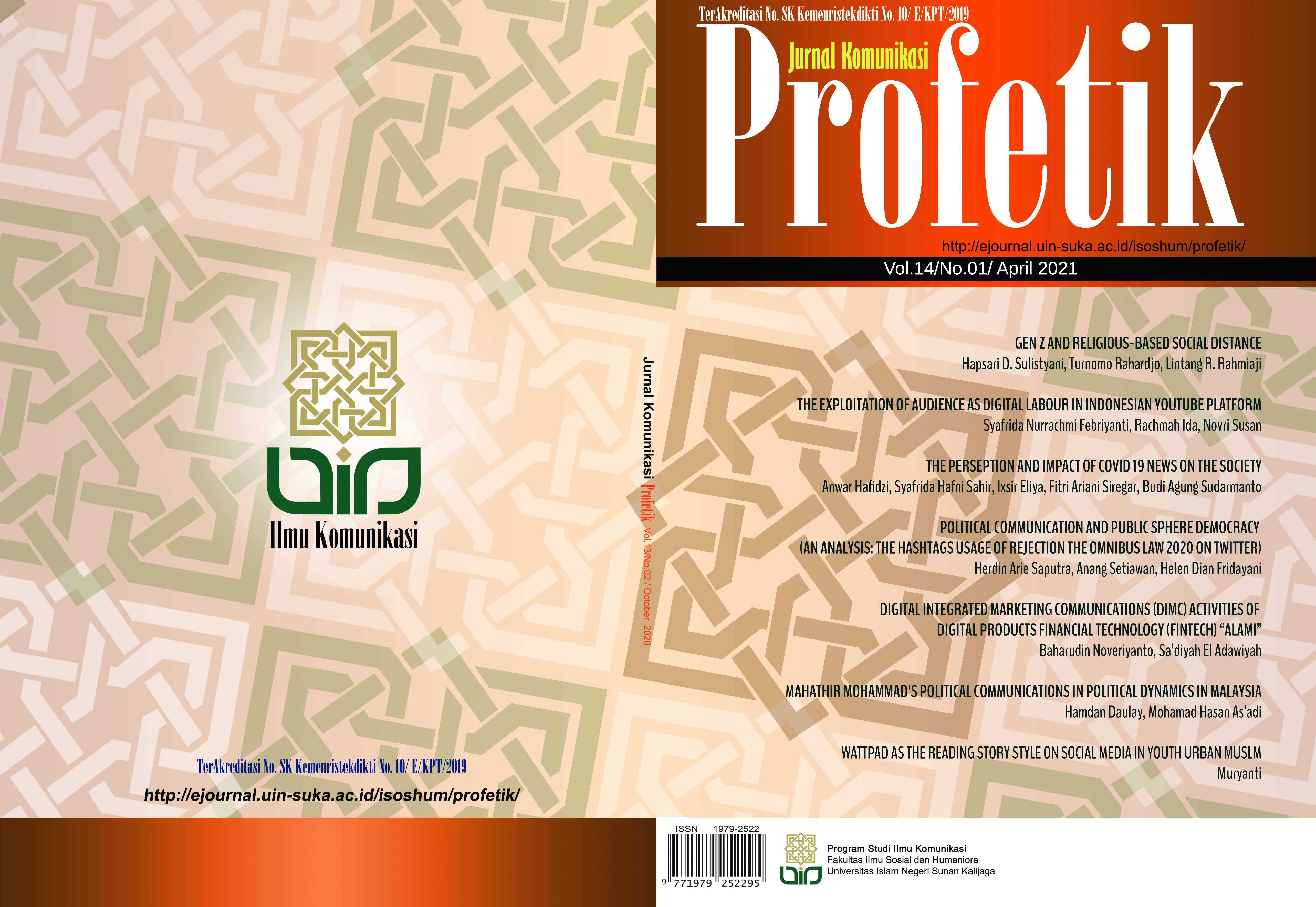Fostering Democracy and Openness: Internal Organizational Communication within Jamaah Tabligh
Main Article Content
Abstract
Islam Jamaah in the context of their practices in society, is often perceived as a group, primarily because most members of society are unaware of their workings. The problem of this research is to prove that Jamaah Tabligh is an organization, not a group. The study aims to find out the internal organization communication the members of Jamaah Tabligh (a religious meeting/congregation) and the patterns of dakwah (missionary endeavor) they apply. The study employs the Goldhaber model of organizational communication with a downward model in relation to leadership, the relationship between superiors and subordinates and the selection of leaders. The study uses the qualitative method. Data is obtained through interviews with seven active members of Jamaah Tabligh. The results of the study reveal that the internal organizational communication of Jamaah Tabligh is a large organization because it has international, national and local headquarters. The organizational communication model is very open and democratic. The leaders try to serve the members of the congregation instead of governing them. The openness of this organizational communication model can be seen in deliberations and has caused Jamaah Tabligh to be favored by lower and middle class people
Article Details
License
Please find the rights and licenses in Profetik: Jurnal Komunikasi by submitting the article/manuscript of the article, the author(s) agree with this policy. No specific document sign-off is required.
1. License
The non-commercial use of the article will be governed by the Creative Commons Attribution license as currently displayed on Creative Commons Attribution-NonCommercial 4.0 International License

2. Author(s)' Warranties
The author warrants that the article is original, written by stated author(s), has not been published before, contains no unlawful statements, does not infringe the rights of others, is subject to copyright that is vested exclusively in the author and free of any third party rights, and that any necessary written permissions to quote from other sources have been obtained by the author(s).
3. User/Public Rights
Profetik's spirit is to disseminate articles published are as free as possible. Under the Creative Commons license, Profetik permits users to copy, distribute, display, and perform the work for non-commercial purposes only. Users will also need to attribute authors and Profetik on distributing works in the journal and other media of publications. Unless otherwise stated, the authors are public entities as soon as their articles got published.
4. Rights of Authors
Authors retain all their rights to the published works, such as (but not limited to) the following rights;
Copyright and other proprietary rights relating to the article, such as patent rights, The right to use the substance of the article in own future works, including lectures and books, The right to reproduce the article for own purposes, The right to self-archive the article (please read out deposit policy), The right to enter into separate, additional contractual arrangements for the non-exclusive distribution of the article's published version (e.g., post it to an institutional repository or publish it in a book), with an acknowledgment of its initial publication in this journal (Profetik: Jurnal Komunikasi).
5. Co-Authorship
If the article was jointly prepared by more than one author, any authors submitting the manuscript warrants that he/she has been authorized by all co-authors to be agreed on this copyright and license notice (agreement) on their behalf, and agrees to inform his/her co-authors of the terms of this policy. Profetik will not be held liable for anything that may arise due to the author(s) internal dispute. Profetik will only communicate with the corresponding author.
6. Royalties
Being an open accessed journal and disseminating articles for free under the Creative Commons license term mentioned, author(s) aware that Profetik entitles the author(s) to no royalties or other fees.
7. Miscellaneous
Profetik will publish the article (or have it published) in the journal if the article’s editorial process is successfully completed. Profetik's editors may modify the article to a style of punctuation, spelling, capitalization, referencing and usage that deems appropriate. The author acknowledges that the article may be published so that it will be publicly accessible and such access will be free of charge for the readers as mentioned in point 3.
